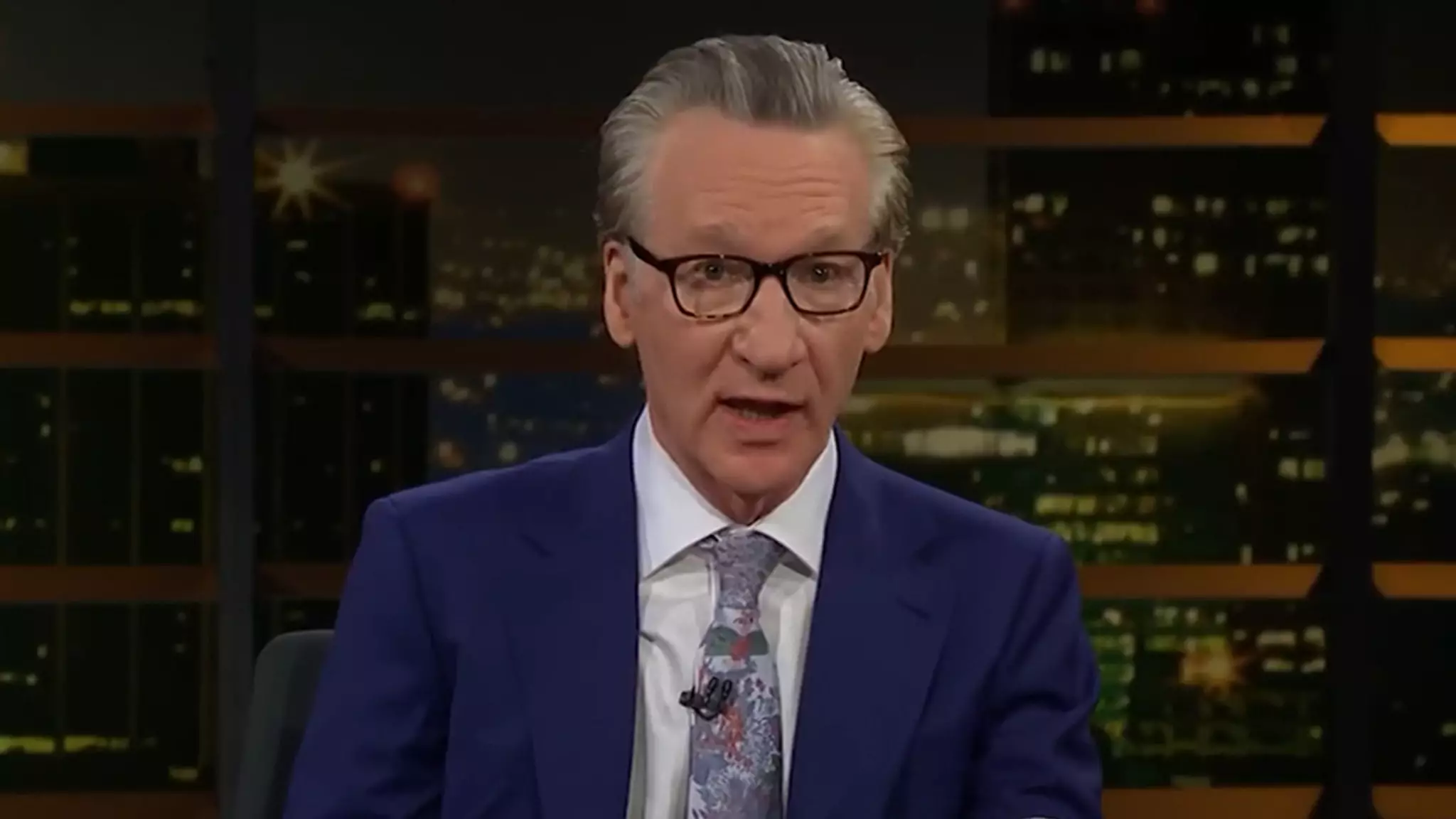In an age when political affiliations often define us, the fallout from these divides extends into personal lives—most notably, how we form romantic connections. The recent discourse ignited by Bill Maher, following the chaotic finale of Netflix’s “Love Is Blind,” underscores an urgent societal issue: left-leaning individuals face the potential of enduring loneliness due to an inflexible approach to dating. My contention is that while political awareness is fundamental, an unyielding stance on compatibility can hinder genuine connections and betray our deeper human instincts.
Cultural Critique of Generational Wokeness
Maher specifically aimed his critiques at the younger generation, particularly Millennials and Gen Z, suggesting that their stringent dating criteria—often dictated by political beliefs—could lead to a dismal future devoid of meaningful relationships. The case of Sara Carton and Ben Mezzenga serves as an illustrative microcosm. The latter’s abandonment at the altar over his perceived insensitivity towards the Black Lives Matter movement raises critical questions about the interplay of societal values and romance. While understanding and supporting social justice causes is commendable, should it monopolize our romantic decisions? The fear of dating someone with different political stances reflects an alarming commitment to ideological purity, often at the expense of personal happiness.
Political Polarization: A Double-Edged Sword
Political polarization—as Maher argues—poses risks that extend beyond the ballot box. In a landscape where disagreements are amplified on digital platforms, the reluctance to engage with opposing viewpoints can foster an environment where individuals mistake ideological homogeneity for compatibility. This phenomenon is especially pronounced in the dating sphere, where white-hot political divides manifest not just in social interaction but also in love. The question arises: are we willing to sacrifice personal connections for the sake of ideological rigidity?
Embracing differing viewpoints and cultivating dialogues across political lines can enrich personal experiences and foster understanding. Maher appeals to the notion that dating someone with contrasting political beliefs doesn’t equate to compromising one’s principles; rather, it expands one’s perspective—and perhaps even one’s heart.
Love Beyond Labels
In advocating for communication across partisan lines, Maher inadvertently calls upon us to challenge the ingrained prejudices that shape our romantic choices. Love, in its purest form, thrives in environments of openness and vulnerability. By allowing our political beliefs to dictate our choice of partner, we risk missing out on the multifaceted human experiences that transcends labels and ideologies.
Individuals seeking connections must recognize that passion for social issues is commendable, but love often resides in complexities that expand beyond our pockets of comfort. The ability to grow with someone, engage in healthy discourse, and perhaps even learn from our differences can lay the foundation for not only lasting relationships, but authentic friendships as well. The urgency of Maher’s message is clear: don’t let the fear of ideological clashes blind you to the profound potential of human connection. In a world overflowing with meaningful causes, love should remain a priority—one that enriches, rather than diminishes, the human experience.

Leave a Reply